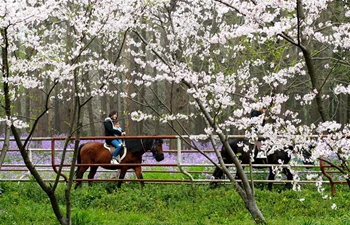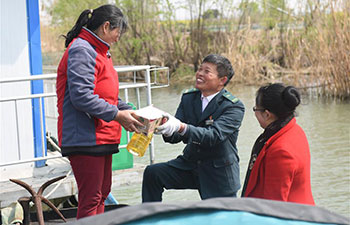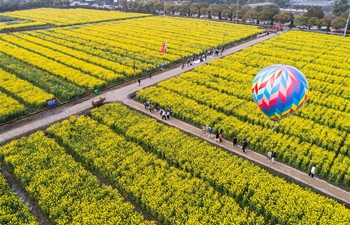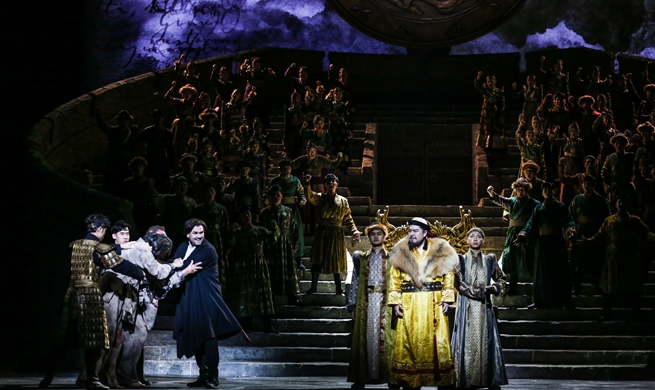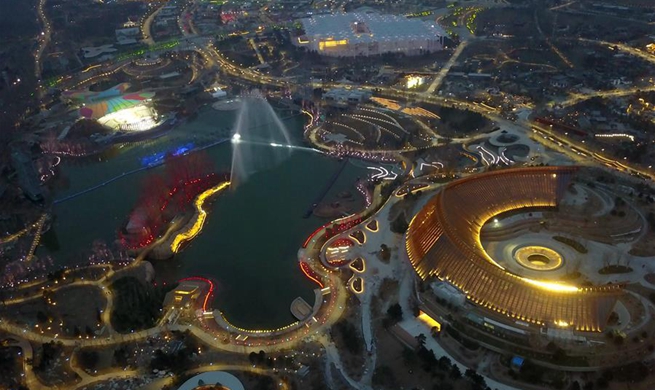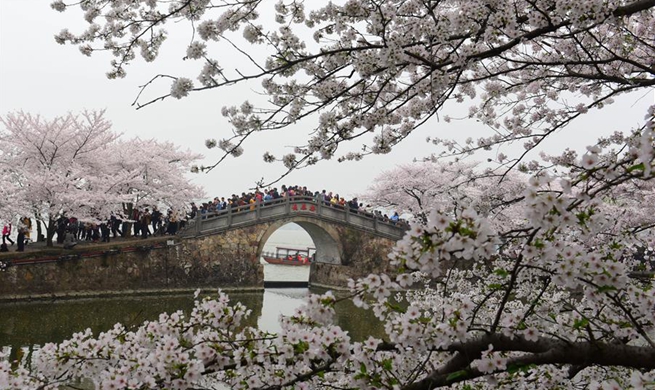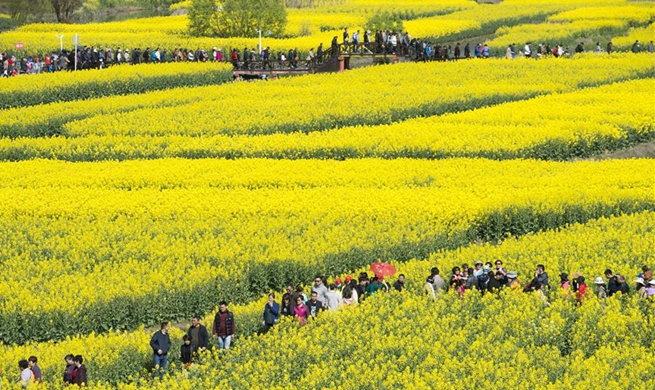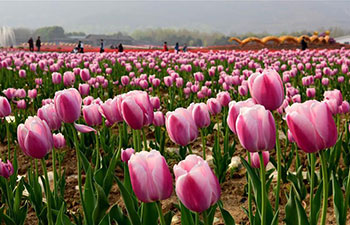SAN FRANCISCO, March 31 (Xinhua) -- An international forum for the world's major bay areas launched a new cooperation platform over the weekend to exchange resources and development ideas, with bay areas in China and the United States also standing to benefit.
The Global Bay Areas Cooperation Council (GBACC), which was formally established at the international forum level to help bay areas address global challenges, will serve as a bridge to assemble resources of the world's top bay areas, so that they can complement each other and secure coordinated development.
The GBACC made its debut at the Global Bay Areas Cooperation and Development Forum (GBAF), organized by People's Daily Online West U.S.A., which brought together prominent leaders, entrepreneurs and scholars from academic institutions, think tanks and major metropolitan and bay areas worldwide.
The new mechanism will become a catalyst for fostering closer cooperation between the San Francisco Bay Area and China's recently established Guangdong-Hong Kong-Macao Greater Bay Area, and help bring their respective advantages into full play.
Gordon Feller, founder and co-president of the Board of Directors of Meeting of the Minds, a global thought leadership network and knowledge-sharing platform focused on sustainable cities, innovation and technology, told Xinhua on Saturday that the two bay areas in San Francisco and China had a lot to learn from each other.
The San Francisco Bay Area is a mature region that has benefited from Silicon Valley's hi-tech, but its development including investment could be constrained by "short-sighted" politicians here, who care more about their two- or four-year election cycles, Feller said.
"In the past, there's been a lot of (federal) government money moving around the (San Francisco) Bay Area," but the funds have been reduced in recent years, because the bay area and many California Democrats voted against the Republican-led federal government, he said.
In contrast, China's political system is very stable, he said, adding that political stability is critical to driving the construction of the bay area, which will help encourage long-term investment.
Jim Wunderman, president of the Bay Area Council (BAC), a non-profit organization that promotes economic development in the San Francisco Bay Area, said the two bay areas in San Francisco and China can complement each other through shared learning and collaboration.
"I think more about collaboration. There probably is competition in some of the technology spaces and things like that, but the digital platform creates so much opportunity that there's a lot of room for success for everybody," Wunderman said.
"Each region has its own strengths. Those individual strengths, if you bring them together, can be greater than some of the parts," he said.
"That was the whole idea of why we started this in the first place. We want to help China to some degree, but it was really more about building together for the future of the world," Wunderman said.
"That's what I think we should be doing. China and the United States are the two places that have the most to offer (by) working together," he said. "This bay area and China's bay area have tremendous assets to bring to bear."
Similarly, Del Christensen, chief of Global Business Development for the San Francisco BAC, said there are a lot of ways that the two regions can collaborate.
"We can also open up markets for our companies to do business together," he said.
Both bay areas have very good mature companies that can do business with each other and grow in open offices, and do business in both places and create jobs, he said.
"They also both have an innovation ecosystem. So, new companies are able to grow in both places and they can share and connect on technology," Christensen said.
He also said both areas have very strong universities. "I think that those universities naturally want to work together. They want to do joint collaboration. They want to share students, they want to share teachers of different programs."
Christensen noted that while the bay areas in China and the United States can maintain their uniqueness, they can also complement each other as "they have a lot of shared good practices" enabling them "to come together on different topics."
However, Wunderman and Christensen admitted that some challenges lie ahead for the two bay areas.
"Different regions, such as Chinese mainland cities, Hong Kong and Macao, have different priorities. A decision that fits Guangzhou may not be right for Hong Kong or Macao," said Wunderman.
The Chinese bay area can learn from the San Francisco Bay Area by making the right decisions about infrastructure as early as it can, and invest in the right things, listen to what people want, and design a place that attracts global talent, he said.
"They have to figure out how to work together, though it's not necessarily that easy," he said.
Christensen noted that there will be competition between both bay areas, but competition isn't bad.
"Normally competition can be very good. Everybody is in competition with each other for talent, for companies, for that sort of thing. So that could be a very good relationship," he said.
Christensen said the two bay areas can cooperate with each other on a lot of issues, such as addressing challenges like rising housing costs and climate change that would lead to a rising sea level.
"Prosperity also brings certain problems like transportation congestion and protecting talents," he said.
The international forum for global bay areas, under the theme of "Connection, Cooperation, Development," was dedicated to exchanges and cooperation between China's Greater Bay Area and bay areas in other countries, namely the San Francisco Bay Area, New York Bay Area and Tokyo Bay Area.
China's Consul General in San Francisco Wang Donghua said the forum is of special significance as it provides a platform for various parties to share their experiences and expertise and to explore solutions to problems facing bay areas at a time when there is growing outcry against globalization.
Steven Rockefeller, Jr., chairman of PFC & SRJ Culture LLC., cautioned that anti-globalization has become a new trend worldwide and many countries are abusing protectionism, which further dampens global economic development.
It's a pressing issue for the bay areas to collaborate by using innovation, dialogue and cooperative development to advance to the next economic level, Rockefeller said.
He had high expectations for China's first bay area -- the Guangdong-Hong Kong-Macao Greater Bay Area.
The Chinese Greater Bay Area is "a region with the largest economic aggregate in China and is in the vanguard of China's bay area economy," he said.
The Chinese bay area consists of the Hong Kong Special Administrative Region, the Macao Special Administrative Region and nine cities in Guangdong Province, with a combined population of about 70 million and a gross domestic product of about 10 trillion yuan (1.48 trillion U.S. dollars) at the end of 2017.


